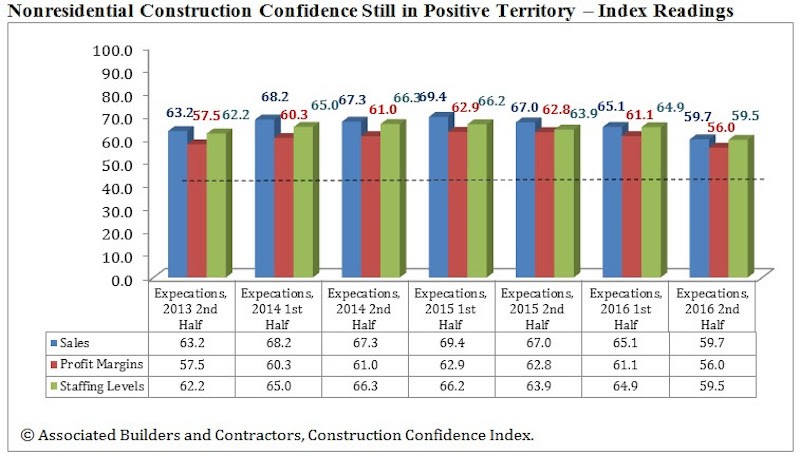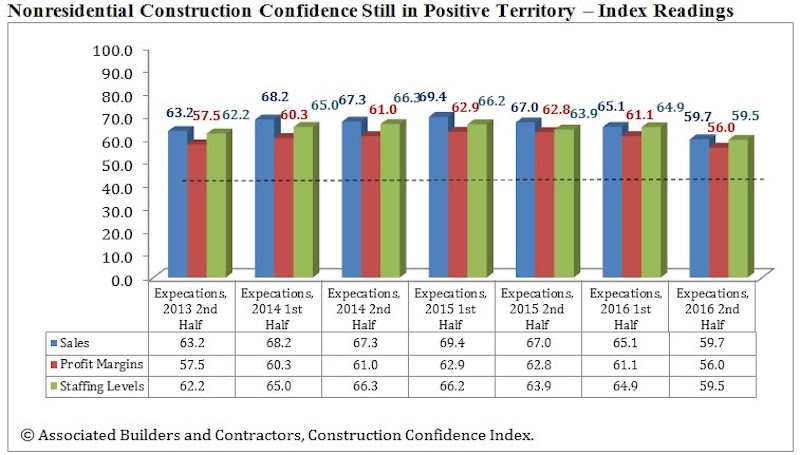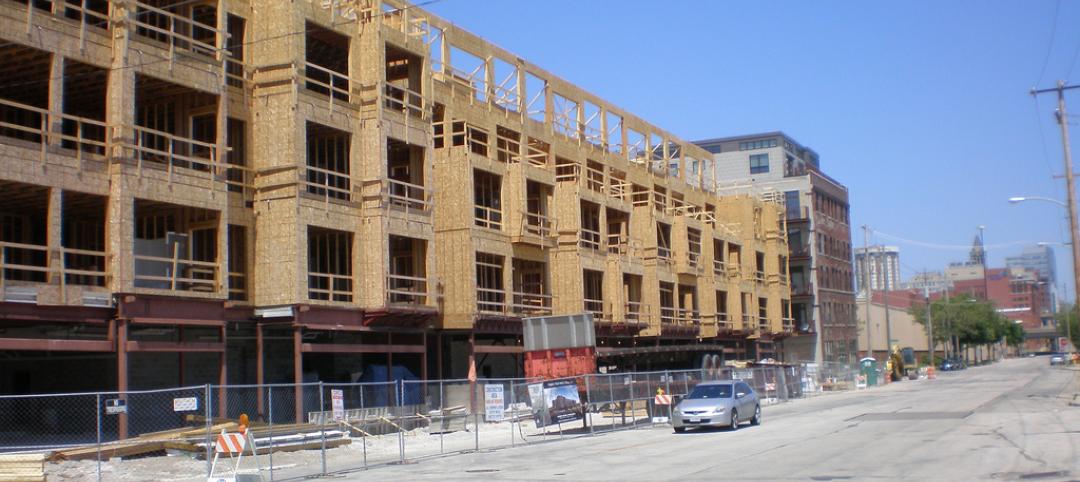Expectations for 2017 have become less optimistic, but the majority of industrial and commercial construction contractors still expect growth this year, according to the latest Associated Builders and Contractors (ABC) Construction Confidence Index (CCI). Although all three diffusion indices in the survey — profit margins, sales and staffing levels—fell by more than five points, they remain well above the threshold of 50, which signals that construction activity will continue to be one of the few significant drivers of economic growth.
The latest survey revealed that:
- The CCI for sales expectations fell from 65.1 to 59.7;
- The CCI for profit margin expectations fell from 61.1 to 56;
- The CCI for staffing levels fell from 64.9 to 59.5.

“There may be a period during which the pro-business agenda being forwarded in Washington, D.C., will significantly impact construction firm expectations,” says ABC Chief Economist Anirban Basu in a release. “In fact, many construction executives have become more confident, including those who would stand to benefit most directly from an infrastructure package. However, there is a realization among construction firms that, if implemented, many of these pro-business initiatives would begin impacting the economy beyond the six-month timeframe built into ABC’s construction confidence survey.
“Despite an ongoing dearth of public construction spending growth, certain construction segments have experienced significant expansion over time, including office, hotel, healthcare and multifamily segments,” says Basu. “This helps explain why more than 60% of respondents expect their sales to rise during early 2017 and the same number expect staffing levels to rise.
“Respondents from Florida and other rapidly growing states are reporting significant shortages of appropriately skilled workers, which is helping to drive compensation costs higher,” says Basu. “This helps explain why fewer than half (48%) of respondents now expect profit margins to climb. That is down from 54% from the previous CCI, supporting the proposition that the construction skills shortfall has worsened over the past six months.
“For now, confidence appears to be supported less by policymaking than by the ongoing momentum of the U.S. construction industry,” says Basu. “Going forward, confidence is likely to depend more intensely on the new administration’s capacity to move its pro-business agenda from theory to practice.”
The following chart reflects the distribution of responses to ABC’s most recent surveys.

Related Stories
Market Data | Jan 5, 2016
Majority of AEC firms saw growth in 2015, remain optimistic for 2016: BD+C survey
By all indications, 2015 was another solid year for U.S. architecture, engineering, and construction firms.
Market Data | Jan 5, 2016
Nonresidential construction spending falters in November
Only 4 of 16 subsectors showed gains
Market Data | Dec 15, 2015
AIA: Architecture Billings Index hits another bump
Business conditions show continued strength in South and West regions.
Market Data | Dec 7, 2015
2016 forecast: Continued growth expected for the construction industry
ABC forecasts growth in nonresidential construction spending of 7.4% in 2016 along with growth in employment and backlog.











